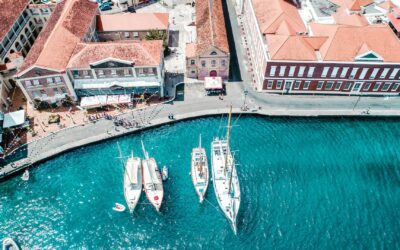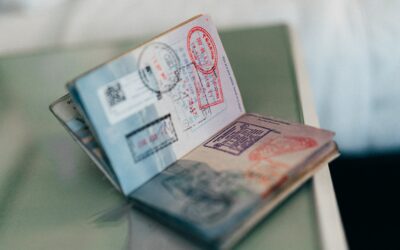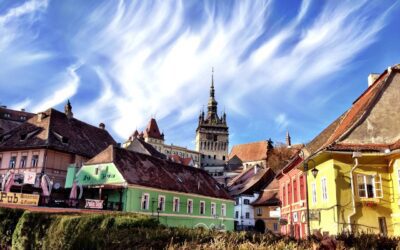|
|
Does having a powerful passport matter? If you have one, it is probably not something you think about much. You can visit most countries as a tourist without getting a visa before you go, or you apply for electronic clearance online before you travel and pay a small fee.
But if you don’t have a powerful visa, it most definitely is something that you think about!
If you hold a “weak” visa, you may find that you have to make expensive visa applications and show substantial means even to go on a short tourist trip. You can also find yourself blocked from doing many things.
I recently discovered that not only are Brazilians not eligible for the ETA to visit the United States, but also that they can’t even transfer through a United States airport without a visa. That means making an in-person appointment and paying an expensive fee or choosing a different (usually more expensive) travel route.
So, while we were interested to see the news that Singapore has displaced Japan as the country with the best passport, we’re actually a bit more interested in the passports at the bottom of the list.
So, let’s take a closer look at what makes a powerful passport, but also what it means not to have one. Specifically, how can you embrace the digital nomad lifestyle if you have a weak passport?
What Makes Passport Power?
This latest news comes from the Henley passport index, which has been rating passports from 199 countries for 18 years. Their ranking is principally based on where a passport lets you travel “visa-free”. Obtaining a visa on arrival and using electronic travel authority when entering a country counts as visa-free.
Japan was at the top of the list for a long time because it gave visa-free access to 193, out of 227 recognized countries. But Japan’s number recently dropped to 189, leaving Singapore on top with 192.
What other countries are near the top of the list? According to Henley:
- Germany, Italy, and Spain
- Japan, Austria, Finland, France, Luxembourg, South Korea, and Sweden
- Denmark, Ireland, the Netherlands, and the United Kingdom
- Belgium, Czechia, Malta, New Zealand, Norway, Portugal, and Switzerland
- Australia, Hungary, and Poland
- Canada and Greece
- Lithuania and the United States
- Latvia, Slovakia, and Slovenia
- Estonia and Iceland
Even the last country on this much longer than “top 10” list has visa-free travel to 182 countries. It is also not lost on readers that all the countries at the top of the list are European countries, rich English-speaking countries, or rich Asian countries that have close alliances with the United States.
And where are the countries that citizens of Singapore need a visa to visit? They are mostly in the Middle East and Africa. On the list are Afghanistan, Algeria, the Central African Republic, Chad, the Republic of the Congo, Eritrea, Iraq, North Korea, Liberia, Libya, Mali, Nauru, Niger, Sudan, Syria, Turkmenistan, Ukraine, Venezuela, and Yemen.
The United States has a few extra restrictions, mostly because their own strict visa rules have led to reciprocal rules for Americans, or political conflicts. You can add to the list Belarus, China, Cuba, Ghana, Iran, and Russia.
Weakest Passports
So, which countries have the weakest passports? It will probably come as no surprise that the same countries that block access to powerful visas are near the bottom of the list.
Afghanistan is at the very bottom of the list with visa-free access to just 27 countries. Those countries include neighboring Pakistan and India, plus several African countries. Moving up the list, it is a similar outlook for Iraq, Syria, Pakistan, and Yemen.
Also near the bottom of the list are countries that have been politically isolated by more powerful neighboring countries, such as Nepal, Bangladesh, and Palestine.
It is a little bit surprising that North Korea is not right at the bottom of the list considering their political isolation, but their passport actually grants access to 40 countries, notably including Russia but not China. However, it is worth remembering that most normal North Koreans won’t be granted a passport.
Also near the bottom of the list are many politically unstable African nations including Somalia (35), Libya (40), Libya (40), Sudan (42), the Democratic Republic of Congo (42), South Sudan (45), Nigeria (45), Eritrea (45), and Ethiopia (46). As you might expect, visa-free travel is mostly to other African countries, but also countries in the Middle East and Southeast Asia.
The middle of the list is dominated mostly by Asian countries. Consider Thailand (80), Bahrain (87), the Maldives (91), and Qatar (118). Their numbers are low mainly because they need a visa to travel to any of the countries in the European Schengen area, which is 27 countries.
A lot of South and Central American countries are higher up on the list. There is El Salvador (132), Colombia (132), Guatemala (136), Peru (136), Paraguay (143), Costa Rica (151), Mexico (159), Brazil (171), and Argentina (173). Their numbers are bumped both by access to the Schengen Area and open movement around South and Central America.
Surprises on the List
There aren’t any really big surprises on the list. The United Arab Emirates gives access to 179 countries, which is much higher than other Arab countries in the region, and much more than neighboring Qatar (118). But considering the importance of the UAE’s airport and airline, and their efforts to become an international center for business, this makes sense.
After my experience of trying to help a Brazilian get a flight through the United States, I was a bit surprised to see it so high up on the list (171). But this reflects more the restrictive nature of travel to the United States rather than the weakness of the Brazilian passport. Many people who travel freely elsewhere have similar issues with the United States.
It is an interesting testament to history that the Hong King passport, still linked in some ways to its previous British colonial status, is powerful (170), while China’s passport is weak (80). Travel for Chinese passport holders is restricted in North America, South America, Europe, and the north of Africa.
It was also perhaps a little surprising that Russia’s passport is so much stronger than China’s (118), but the Russian passport gives broad access to South America and Asia.
Can You Be a Digital Nomad with a Weak Passport?
Is it realistic to expect to be able to embrace the digital nomad lifestyle if you have a weak passport? Certainly, being a digital nomad is all about traveling to broaden your horizons, seek new experiences, and enjoy a lower cost of living. While you might not be able to travel to all the same places as digital nomads with strong passports, the challenge might make the experience even more fulfilling.

Make the Most of Where You Can Travel
As a digital nomad with a weak passport, you need to embrace and celebrate where you can travel. This may sometimes mean heading to places a bit further off the beaten track, but that is exciting in itself.
Plus, while other digital nomads are making a living sharing their experiences in Europe, Southeast Asia, and a few South American hotspots, you could be among the first to share your experiences in the Middle East and Africa. As all digital nomads look to find newer territories, this could be a big opportunity.
Apply for Digital Nomad Visas
You can always apply for visas to places that you have always wanted to travel, it just requires more planning in advance and the pressure to demonstrate sufficient means to support yourself. But the launch of new digital nomad visas is making that easier than ever. One of the Schengen area digital nomad visas can be particularly beneficial since it lets you travel as a tourist in other Schengen countries. Among the most accessible are Hungary, Spain, and Portugal.
In addition, if you manage to get a visa to some of the other wealthy countries, such as the United States, Canada, or Australia, this can help you qualify for other visas. They are considered high-standard visas, so sometimes just having one score points on another application.
Get a New Nationality
If you are wealthy, you can always buy yourself a new nationality through nationality by investment schemes.
You can buy citizenship in several Caribbean countries with an investment of between US$100,000-150,000. A Saint Kitts and Nevis passport gives access to 155 countries, Antigua and Barbuda (150), Grenada (147), and Saint Lucia (147).
If you want a stronger passport, Austria (190) has an investment scheme, but it requires an unspecified “substantial contribution to the Austrian economy” and takes 2-3 years to process rather than 2-3 months, as is the case with most Caribbean countries.
Does Passport Power Matter?
Does it really matter how powerful your passport is?
It is a hard reality of life that the resources you are born with have a huge impact on how easy it is to do certain things. Wealth tends to be generational, Hollywood runs on nepotism, and if you are born in a country with a powerful passport traveling is easier.
But just because you aren’t starting from a position of advantage doesn’t mean it can’t be done. But it will be harder.











